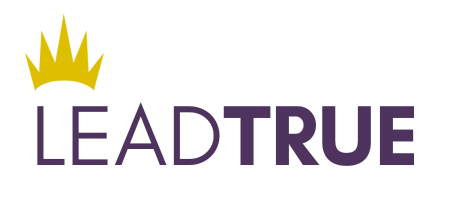Finding and Nurturing Your True Community
By Tiara Resource Circle Member Barbara Govednik
The pull of community – that warm embrace of like‐minded and supportive people in comfortable and comforting surroundings – is as intrinsic a need in us humans as the need to breathe. As poet John Donne wrote, “No man is an island, entire of itself.” Indeed, now more than ever, belonging to a values‐based, positive community is important for feeling grounded, happy, and successful.
But what Donne wasn’t facing during his lifetime in the 1500s and 1600s was the bombardment of potential communities that modern women are faced with – family, coworkers, friends, neighbors, kids’ play date partners and school mates, church members, fellow volunteers – and those are just the physical communities. Add to that your LinkedIn groups, Facebook friends, Twitter followers and it’s enough to make anyone surrender and say “enough community already, leave me alone!”
The trick is to intentionally create and sustain communities that are good for you and minimize if not completely extricate yourself from communities that deflate or defeat you.
True Community is Intentional and Authentic
According to Chicago psychologist Alison Miller, there is a profound difference between intentionally creating community and letting communities develop around you by default. “It’s perfectly okay and more sustaining to be clear on why you are part of a particular community, and know what you get out of that community.”
That means showing up as you, not as the definition of the group or as what you think the other members are expecting of you. It’s the difference between being one of the moms in a playgroup community that exists because your kids all happen to play together and being your authentic self engaged with other moms and sharing your child’s experience in a playgroup community.
A true, nurturing community is one where you bring your best self, live your values, are welcomed as that person and allowed to be who you are. This belief is at the heart of the community Miller and her partners in Tiara Coaching are creating for women rediscovering themselves and their sense of purpose.
“People long for community,” says Tiara Coaching’s Betsy Sobiech noting that belonging is more fun, makes you more effective and can help you connect with yourself in a positive, powerful way.
Signs that you are in a community that is truly nurturing include:
You look forward to time spent in that community.
You are motivated and engaged in the activities and conversations of the community.
You are your best self in the presence of the community.
You feel rejuvenated and energized after spending time with the community.
Purposeful Shifts
Just as it’s crucial to be intentional about how you create community, so is it important to be intentional about how, or if, you sustain communities. Your life situation is hardly static, so there is an ongoing need to reflect and adjust to keep yourself engaged in an authentic way to your communities. That’s why it’s important to keep asking yourself why you continue to be part of a particular community and what you continue to get from it.
Communities can shift, adjust and embrace the changes it members go through, whatever they may be. Beth Ruske, another Tiara Consulting coach, knows this first‐hand through her community of women she has known since they were six years old. The thing that has bound them together through decades of changes? “Acceptance,” says Ruske. “This group has always been very ‘come as you are.’”
It’s also possible to make shifts in more structured communities where we don’t feel completely in control such as in our families or at work. Rather than focusing on all the ways you can’t change the dynamic of the community, take baby steps. Make one‐degree shifts in how you approach the community, moving, for instance, from dreading a meeting with your boss to not looking forward to it. Over time, these small, manageable shifts can make you feel less trapped and powerless.
Graceful Exits
Sometimes, despite our best intentions and attempts to shift communities, we find ourselves in places where communities no longer serve us. “You’re fooling yourself if you think you can stay engaged in a community that doesn’t work for you,” says Sobiech. “You’re doing a disservice to yourself, and you are doing a disservice to the other members.”
Signs a community may not be serving you include:
Feeling drained and worn out by the community or its members
Being judgmental about the other people in the community most of the time
Finding that the community tends to bring out qualities you don’t like in yourself
In these situations, a proactive approach is the best – if somewhat scary – way to go. Extricating yourself from a community requires that you be clear about what works for you, you communicate it clearly and you take responsibility for what you want. It can be heart‐wrenching, but it can also be liberating when you take a stand for your own well‐being. And you might just find that you are voicing a concern that others in the community have but didn’t have the courage to address.
True Community Is Powerful
We are all social beings, to one degree or another. None of us really are that island to ourselves, and when we withdraw too much, because we don’t have a strong community or we are connected to the wrong ones, it doesn’t feel healthy or regenerating.
“Being in community is the essence of what it is to be human,” concludes Miller. And being a true community is the essence of being a powerful human being.

